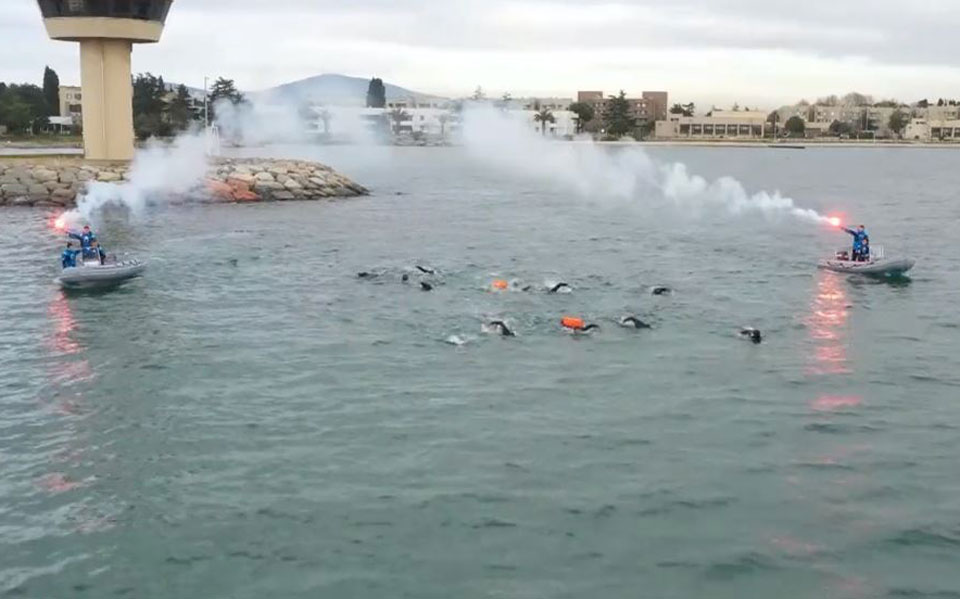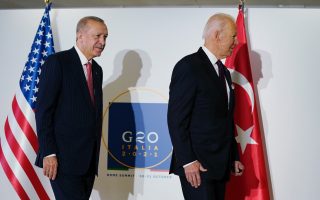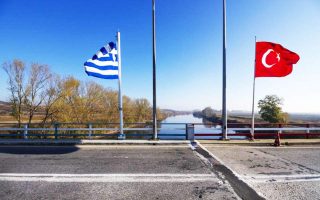Turkish Naval Academy cadets swimming

Cadets of the Turkish National Defense University’s Naval Academy were seen in a recent video swimming a distance of 1,950 meters to the islet of Tuzla, seemingly to prove that they can take over the Greek island of Kastellorizo.
The Turkish Ministry of Defense then published the relevant video, accompanied by statements by is minister, Hulusi Akar who, in a showy style, stated that the specific Greek island is only 1,950 meters from the Turkish coast and that the aspiring members of the Turkish armed forces can get there swimming.
This took place as the Turkish National Assembly voted to uphold the threat of war (casus belli) against Greece, directly threatening the latter if it exercises its inalienable right to extend its territorial waters to 12 nautical miles, based on the Law of the Sea.
At the same time, Turkey is urging Greece to relinquish its internationally recognized right to self-defense, at a time when, as Greek Foreign Minister Nikos Dendias rightly pointed out, “Turkey has deployed the largest landing force in the Mediterranean while at the same time asks us to demilitarize our islands.”
Akar accused us that with the “showing off of weapons,” as well as with the formation of new alliances or the deepening of existing ones, we are trying to gain supremacy over Turkey, and that all these moves are doomed to fail.
Given these reactions by Turkey, which often go beyond simple exaggeration and reach the limits of ridiculousness, our neighbors need to understand a few things:
Firstly, they gain nothing with ridiculous actions such as filming the students of the Naval Academy swimming 1,950 meters, with a backdrop of colorful smoke bombs; they certainly do not scare Greece.
Secondly, any country that has aggressive aspirations against Greece must calculate not only the military deterrent capability of our country, but also its alliances and the power that results from its equal participation in a politico-economic powerhouse such as the European Union. In this light, the blow that would be inflicted on the Turkish economy but also on its regional influence by a possible attack against Greece should also be considered.
Thirdly, Athens only has one front to manage – the one to its East – in contrast to Ankara which has at least two – the Aegean and the complex puzzle on its southeastern flank.
Fourthly, Greece is not a “fly,” as one advisor of Turkish President Recep Tayyip Erdogan once said with arrogance and gall, but also ignorance of reality.
The Turkish Defense Minister also stated: “This is a futile effort… The Turkish armed forces have the ability, the strength and the willpower to defend our country’s rights and interests. We want everyone to know that.”
His Greek counterpart could say the very same thing about Greece.





